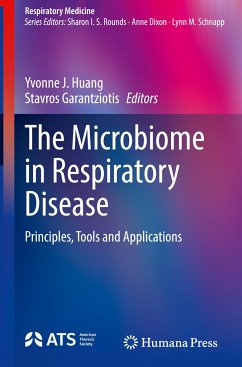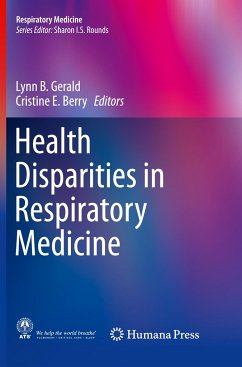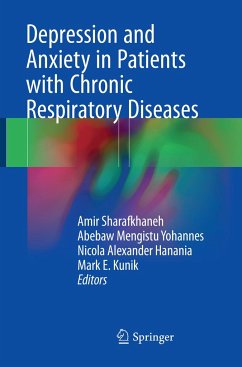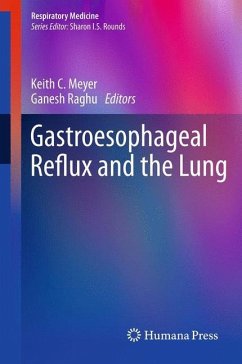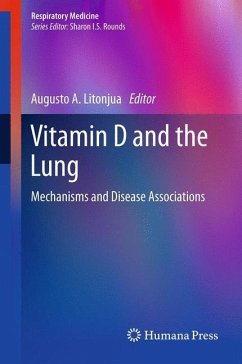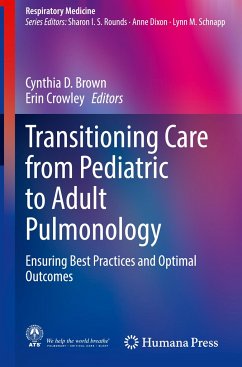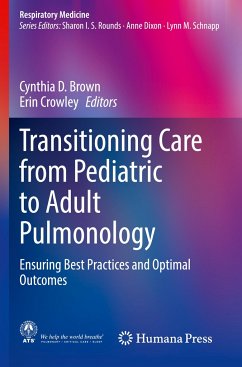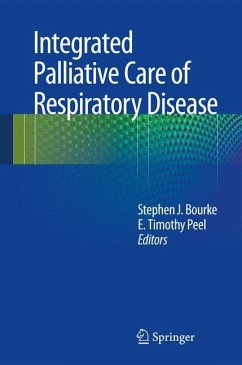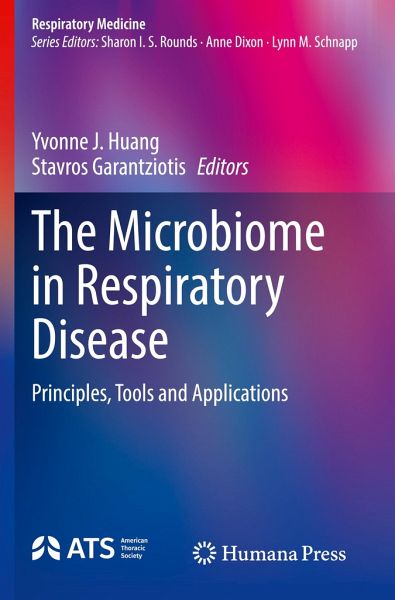
The Microbiome in Respiratory Disease
Principles, Tools and Applications
Herausgegeben: Huang, Yvonne J.; Garantziotis, Stavros
Versandkostenfrei!
Versandfertig in 1-2 Wochen
82,99 €
inkl. MwSt.

PAYBACK Punkte
41 °P sammeln!
This book comprehensively covers the microbiome in respiratory disease, from the initial research study to the disease-specific implications and related applications. Research on the respiratory microbiome is increasing in volume and scope. This reflects rapidly growing interest in the study of respiratory disease to understand how microbiota shape mechanisms of disease pathogenesis. The respiratory tract spans the nasal passages, sinus cavities, oropharynx, and the tracheobronchial tree of the lungs. In these compartments of the upper and lower respiratory tract, the microbiota have now been ...
This book comprehensively covers the microbiome in respiratory disease, from the initial research study to the disease-specific implications and related applications. Research on the respiratory microbiome is increasing in volume and scope. This reflects rapidly growing interest in the study of respiratory disease to understand how microbiota shape mechanisms of disease pathogenesis. The respiratory tract spans the nasal passages, sinus cavities, oropharynx, and the tracheobronchial tree of the lungs. In these compartments of the upper and lower respiratory tract, the microbiota have now been studied in the context of several chronic respiratory conditions. These include chronic sinusitis, allergic rhinitis, asthma, chronic obstructive pulmonary disease (COPD), bronchiectasis and pulmonary fibrosis, to name a few. The potential impact of ecological interactions (i.e., between microbes and between microbiota and host) within and across respiratory compartments is increasingly recognized.
The book is organized into two main sections. Part I, Principles and Tools, covers conceptual modeling of the respiratory microbiome, experimental methodology with a focus on a priori considerations in study design and sampling, laboratory and computational methods for analysis of respiratory microbiome data, and minimizing interpretive pitfalls. Part II, Applications, discusses the evidence from specific studies that have shed novel insights into the influence of respiratory microbiota on mechanisms or outcomes in specific diseases. Based on current best evidence, disease-specific chapters include chronic rhinosinusitis, asthma (pediatric and adult studies), chronic obstructive pulmonary disease (COPD), cystic fibrosis (CF), bronchiectasis not due to CF, idiopathic pulmonary fibrosis, and lung transplant.
This is an ideal reference for forward-thinking practitioners with interest in novel developments in precision medicine applications in lung disease, as well as translational scientists in the field of microbiology, immunology and lung biology.
The book is organized into two main sections. Part I, Principles and Tools, covers conceptual modeling of the respiratory microbiome, experimental methodology with a focus on a priori considerations in study design and sampling, laboratory and computational methods for analysis of respiratory microbiome data, and minimizing interpretive pitfalls. Part II, Applications, discusses the evidence from specific studies that have shed novel insights into the influence of respiratory microbiota on mechanisms or outcomes in specific diseases. Based on current best evidence, disease-specific chapters include chronic rhinosinusitis, asthma (pediatric and adult studies), chronic obstructive pulmonary disease (COPD), cystic fibrosis (CF), bronchiectasis not due to CF, idiopathic pulmonary fibrosis, and lung transplant.
This is an ideal reference for forward-thinking practitioners with interest in novel developments in precision medicine applications in lung disease, as well as translational scientists in the field of microbiology, immunology and lung biology.



